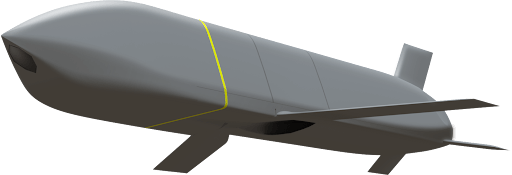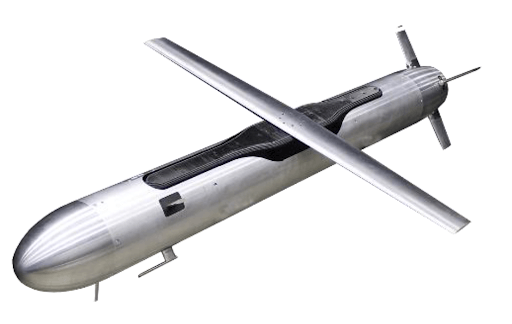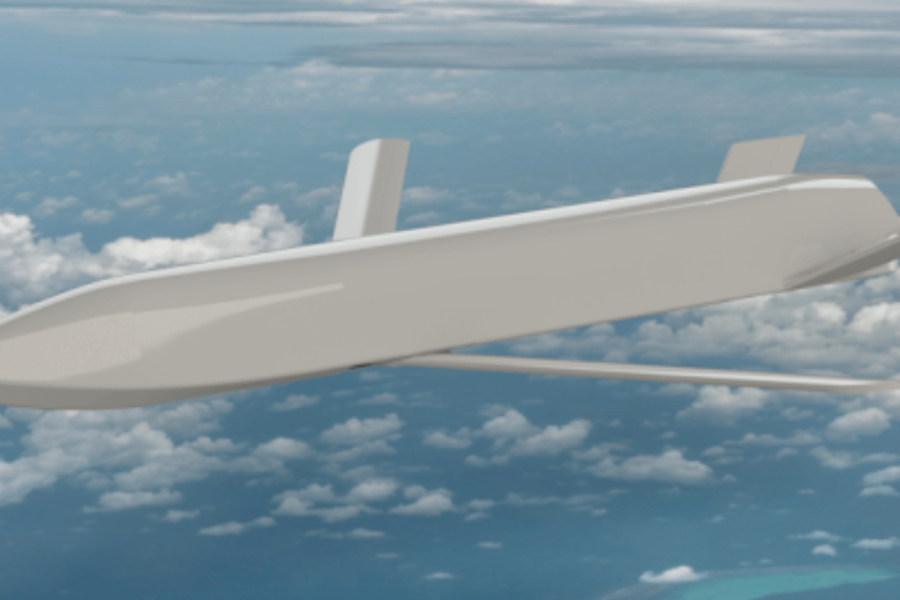Four companies will develop Enterprise Test Vehicles designed to use off the-shelf and readily-available components and materials meant for rapid, high-rate production, the Air Force’s Armament Directorate and Pentagon’s Defense Innovation Unit announced June 3.
Anduril Industries, Integrated Solutions for Systems, Inc., Leidos Dynetics and Zone 5 Technologies received contracts “to develop prototype solutions for flight demonstration in late summer/fall 2024,” according to a DIU press release, but the contract values and the dates of the awards were not disclosed.
The program will aim to maximize subsystem modularity and will complement the Air Force’s Collaborative Combat Aircraft program, as well as other efforts.
It isn’t immediately clear whether the program directly supports the Pentagon’s “Replicator” effort, but its goals align with it. Replicator, announced by Deputy Defense Secretary Kathleen Hicks last August, is focused on large-scale production of low-cost but capable systems to achieve mass effects.
The four companies picked for the Enterprise Test Vehicle program “were selected from a highly competitive field of more than 100 commercial and dual-use technology company applicants,” according to a DIU release.
Anduril was also one of two companies to receive contracts in April for the first increment of the Air Force’s Collaborative Combat Aircraft program, and a company spokesman said the ETV work will be done “by the same group” within the company. General Atomics was the other company picked to do CCA work.

In a statement, Anduril’s senior vice president for its air dominance and strike division Jason Levin said the company looks forward to working with DIU and the Air Force Armament Directorate “to deliver deliver a highly-producible, modular, affordable, and capable Enterprise Test Vehicle (ETV) that will serve as the baseline architecture for large-scale production of next-generation airborne platforms.”
The new project will identify and prototype “commercial and dual-use technology solutions for an Enterprise Test Vehicle that demonstrates modularity for subsystem upgrade testing,” the DIU said. “The technology will also serve as a foundation for affordable, high-speed production.”
“Initial flight demonstrations will occur within seven months from the agreement award dates,” the DIU said, suggesting the contracts were awarded around January. After test flights and evaluations, “one or multiple of the most promising prototypes will continue development toward a production variant capable of rapidly scalable manufacture.”

Under the program, the contractors are incorporating commercial, off-the-shelf components “wherever possible to mitigate supply chain bottlenecks and to keep costs low,” the DIU said. They will also “leverage modern design for manufacturing approaches,” so that the vehicles aren’t over-engineered and minimize the use of expensive or hard-to-get materials, making high-rate production easier.
Cassie Johnson, the Air Force Armament Directorate’s ETV program manager, said that while the directorate “remains committed to our highly-capable legacy products, we have become convinced that widening the aperture to include more non-traditional aerospace companies offers the best chance at accomplishing our cost-per-unit goals, project timeline, and production quantity goals.”
She said the directorate anticipates “bringing respectable capability to our warfighters” through the ETV effort.
The designs will use an open architecture, in order to rapidly integrate subsystems and ease future design improvements.
The DIU said the idea is to use ETVs “en masse, through multiple launch methods” to create “an overwhelming dilemma for any defending adversary.”
Doug Beck, director of the DIU, said the award “is a great example of how we are partnered closely with the Air Force to drive innovation for the warfighter.”
Additional ETV government project collaborators and evaluators include Air Force Research Laboratory (AFRL), Special Operations Command (SOCOM), Naval Air Systems Command (NAVAIR), and U.S. Indo-Pacific Command (USINDOPACOM).
“We are excited to partner with DIU,” Air Force acquisition, technology and logistics chief executive Andrew Hunter said.
